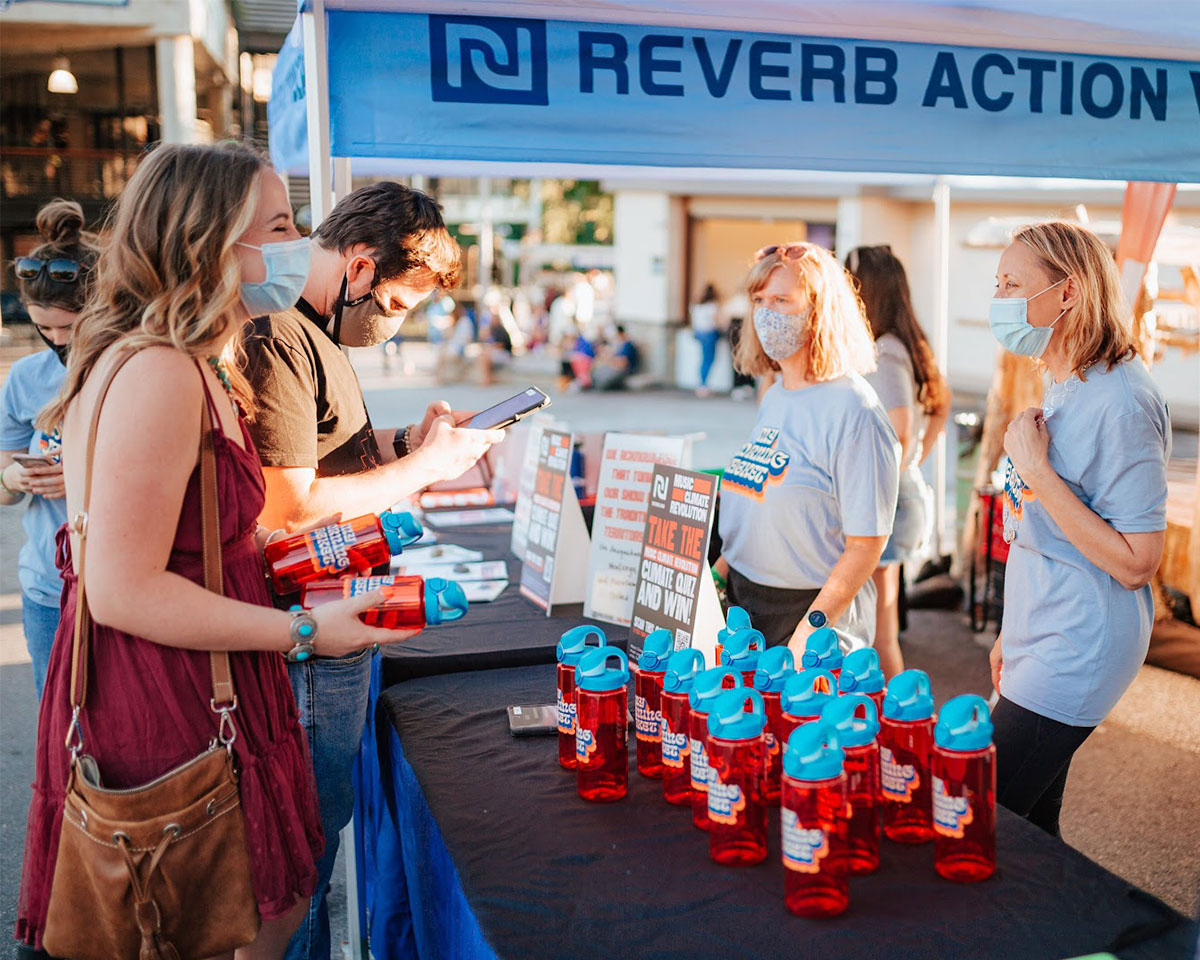Why The Music Industry Keeps Turning To REVERB

Photo: Courtney Kiara Boyer
For two decades, the organization has helped make concerts more sustainable — while engaging fans on environmental and social issues.
In the early ’00s, Adam Gardner’s home and work lives didn’t align. “We would live an environmentally friendly lifestyle at home, and then he would go off on the tour bus powered by diesel, using Styrofoam and plastic utensils, and just feeling miserable about it all,” recounts the Guster frontman’s then-girlfriend, now-wife, Lauren Sullivan. “He realized other artists were feeling the same way.”
Gardner cared about sustainability. Many music business stakeholders that he met, in touring especially, didn’t. So he and Sullivan — a veteran of environmental organizations including Rainforest Action Network — set out to redefine how the industry approaches its footprint.
In 2004, they co-founded REVERB (they’re now co-executive directors), partnering in short order with prominent eco-friendly acts like Dave Matthews Band and Jack Johnson. Twenty years on, its guiding mission remains: working with artists (its partners now include Billie Eilish, ODESZA and The 1975) and the music business to implement sustainable touring measures and to leverage the fan-artist relationship to increase engagement with environmental and social issues.
